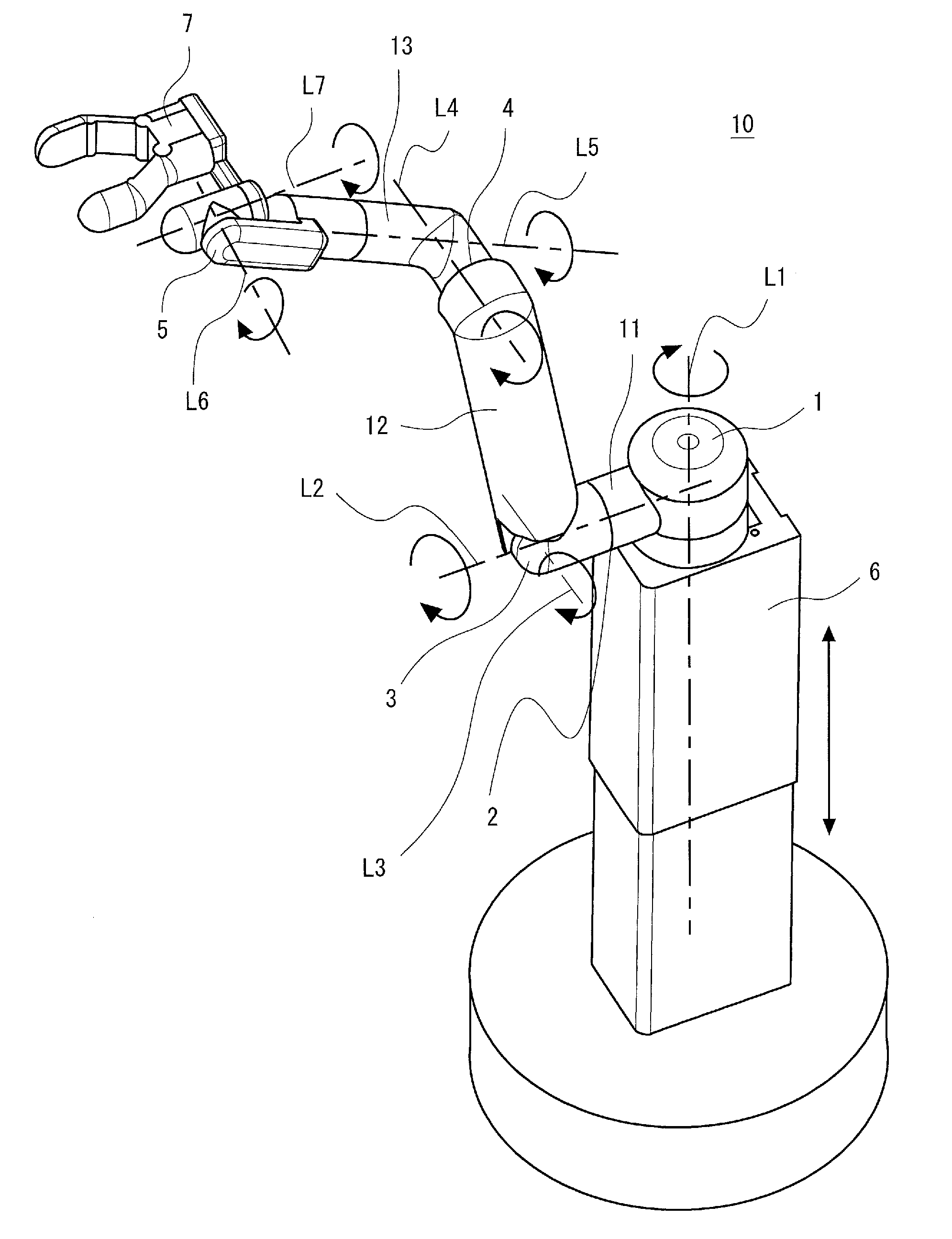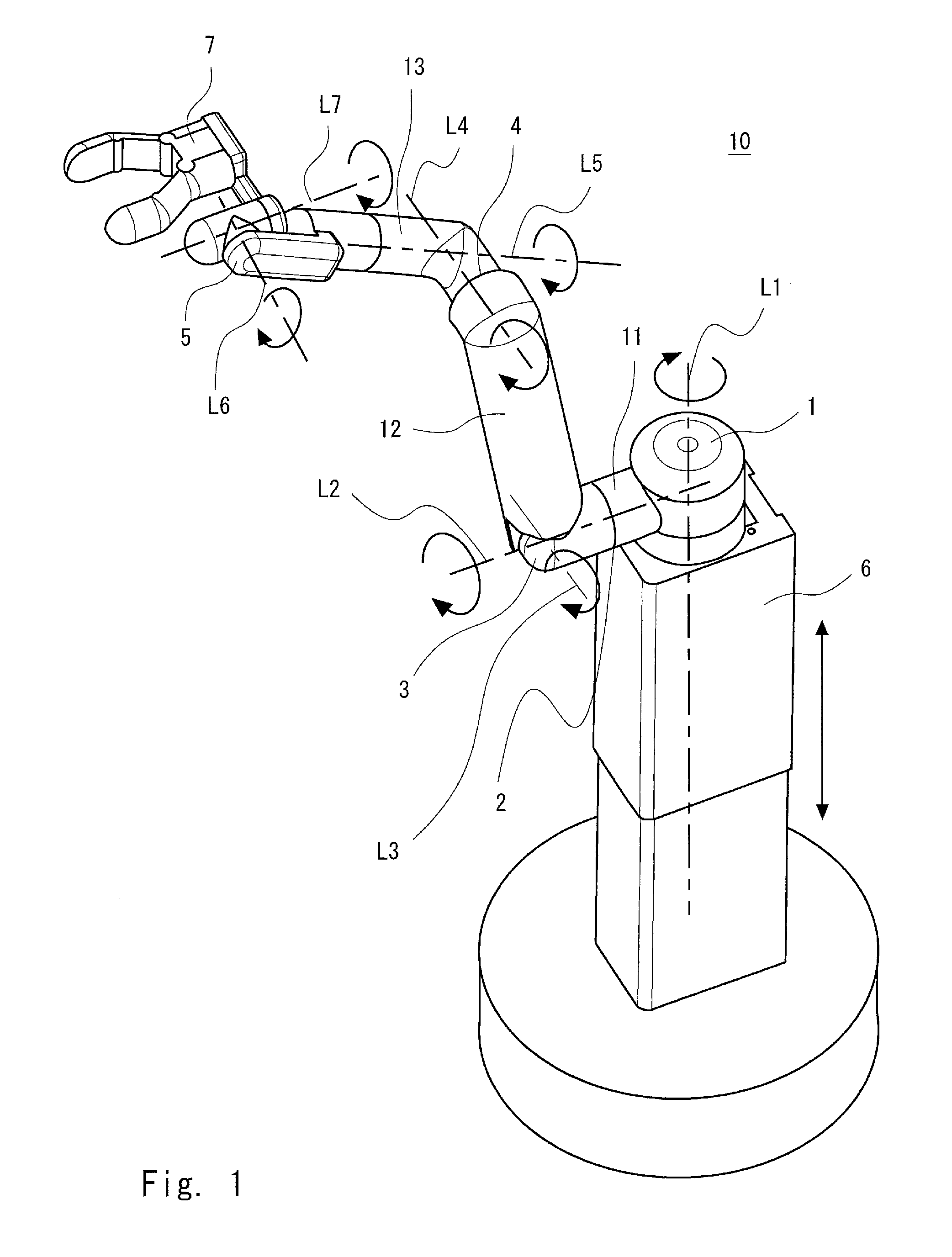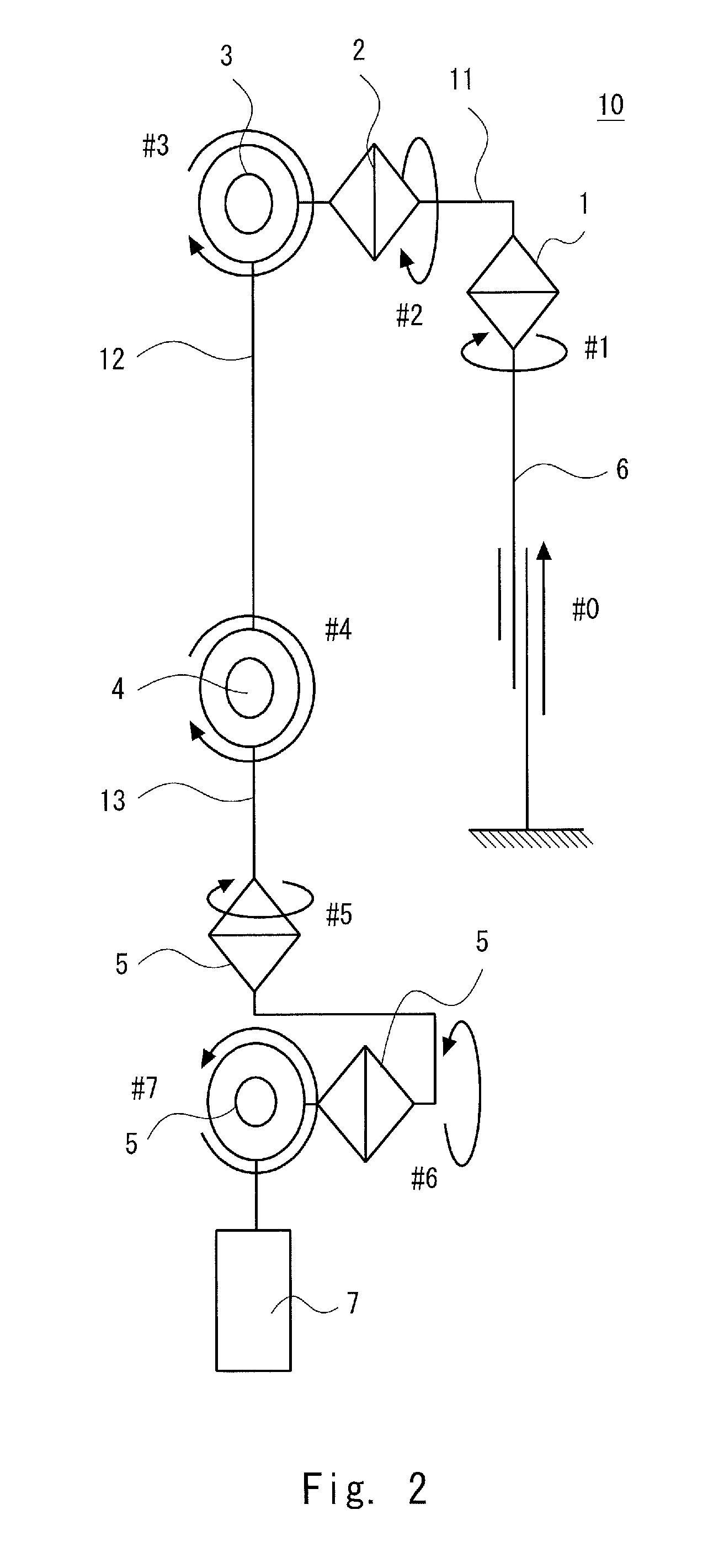Articulated arm robot, control method and control program
a robot and arm technology, applied in the field of articulated arm robots, can solve the problems of power consumption and unsafe arm structure, and achieve the effect of small driving force and simple structur
- Summary
- Abstract
- Description
- Claims
- Application Information
AI Technical Summary
Benefits of technology
Problems solved by technology
Method used
Image
Examples
first embodiment
[0047]Embodiments of the present invention are described hereinafter with reference to the drawings. FIG. 1 is a perspective view showing a schematic structure of an articulated arm robot according to a first embodiment of the present invention. FIG. 2 is a block diagram showing a schematic arm structure of the articulated arm robot according to the first embodiment. FIG. 3 is a block diagram showing a schematic system configuration of the articulated arm robot according to the first embodiment.
[0048]An articulated arm robot 10 according to the first embodiment includes a support part 6 fixed to a given position, a first arm part 11 with one end joined to the top end of the support part 6 through a first joint 1, a second arm part 12 with one end joined to the other end of the first arm part 11 through a third joint 3, a third arm part 13 with one end joined to the other end of the second arm part 12 through a fourth joint 4, an end effector part 7 joined to the other end of the thi...
second embodiment
[0072]In the articulated arm robot 10 according to a second embodiment of the present invention, the controller 8 controls the rotation of the first, third and fourth joints 1, 3 and 4 by controlling the first, third and fourth drivers 21, 23 and 24 to minimize the torque imposed on the roll axis L2 of the second joint 2 in the SCARA mode. In the SCARA mode, a large torque is likely to act on the roll axis L2 of the second joint 2; however, by minimizing the torque of the second joint 2, the second driver 22 with a small driving force can be employed, which allows the improved safety and lower power consumption of the arm.
[0073]For example, the controller 8 controls the rotation of the first, third and fourth joints 1, 3 and 4 by controlling the first, third and fourth drivers 21, 23 and 24 so as to minimize a moment force (moment length X1) by the center of gravity position G of the second joint 2 to the end effector part 7 (FIG. 13).
[0074]Next, an example of a method of minimizing...
third embodiment
[0088]In the articulated arm robot 10 according to a third embodiment of the present invention, the controller 8 controls the rotation of the third and fourth joints 3 and 4 by controlling the third and fourth drivers 23 and 24 to minimize the torque imposed on the pitch axis L3 of the third joint 3 in the perpendicular mode. In the perpendicular mode, a large torque is likely to act on the third joint 3; however, by minimizing the torque of the third joint 3, the third driver 23 with a small driving force can be employed, which achieves the improved safety and lower power consumption of the arm.
[0089]For example, the controller 8 controls the rotation of the third and fourth joints 3 and 4 by controlling the third and fourth drivers 23 and 24 by selecting a solution of the inverse kinematics with a smaller moment force (moment length X2) around the pitch axis L3 of the third joint 3 by the center of gravity position G from the third joint 3 to the end effector part 7.
[0090]To be mo...
PUM
 Login to View More
Login to View More Abstract
Description
Claims
Application Information
 Login to View More
Login to View More - R&D
- Intellectual Property
- Life Sciences
- Materials
- Tech Scout
- Unparalleled Data Quality
- Higher Quality Content
- 60% Fewer Hallucinations
Browse by: Latest US Patents, China's latest patents, Technical Efficacy Thesaurus, Application Domain, Technology Topic, Popular Technical Reports.
© 2025 PatSnap. All rights reserved.Legal|Privacy policy|Modern Slavery Act Transparency Statement|Sitemap|About US| Contact US: help@patsnap.com



